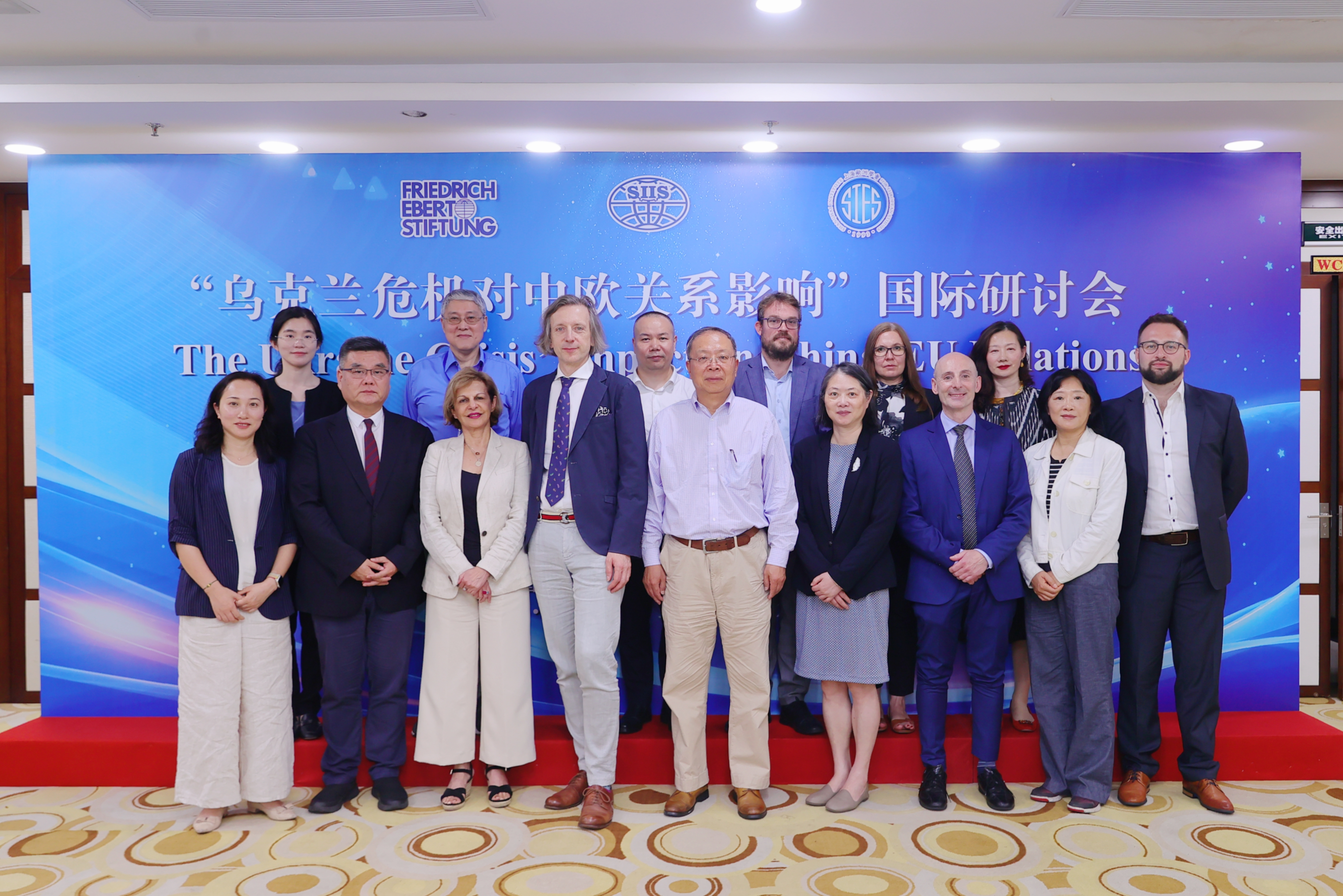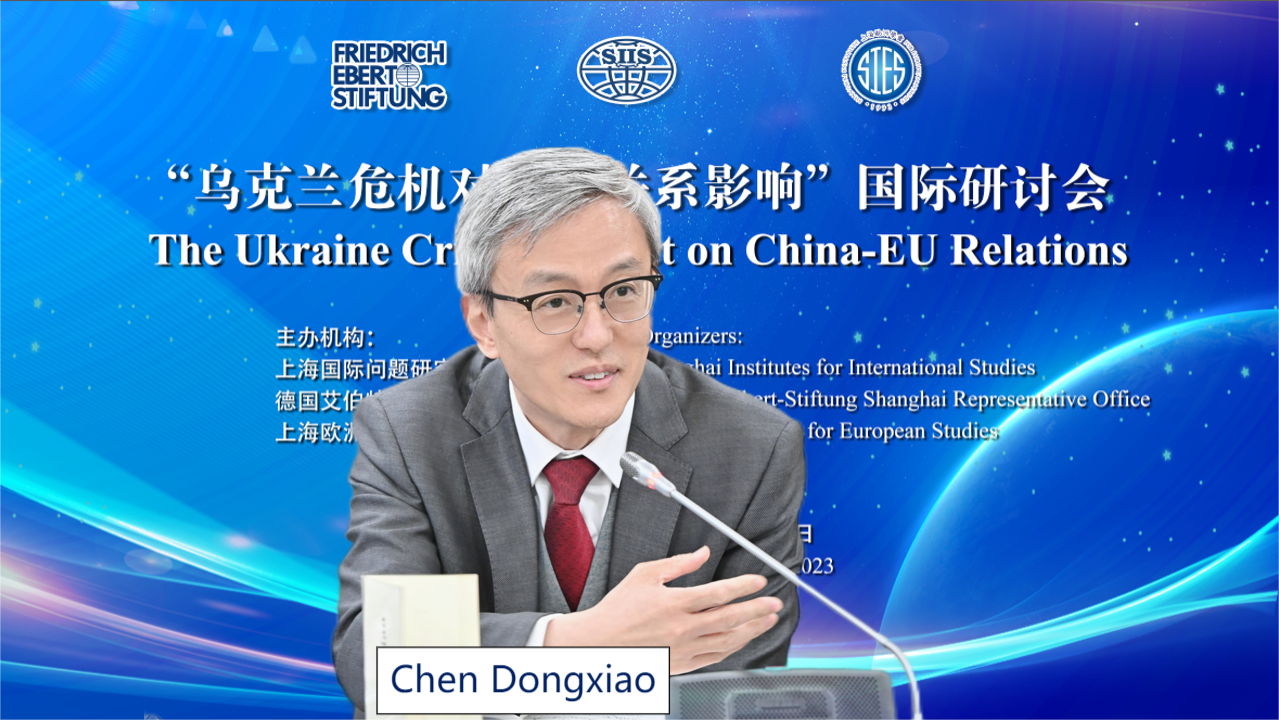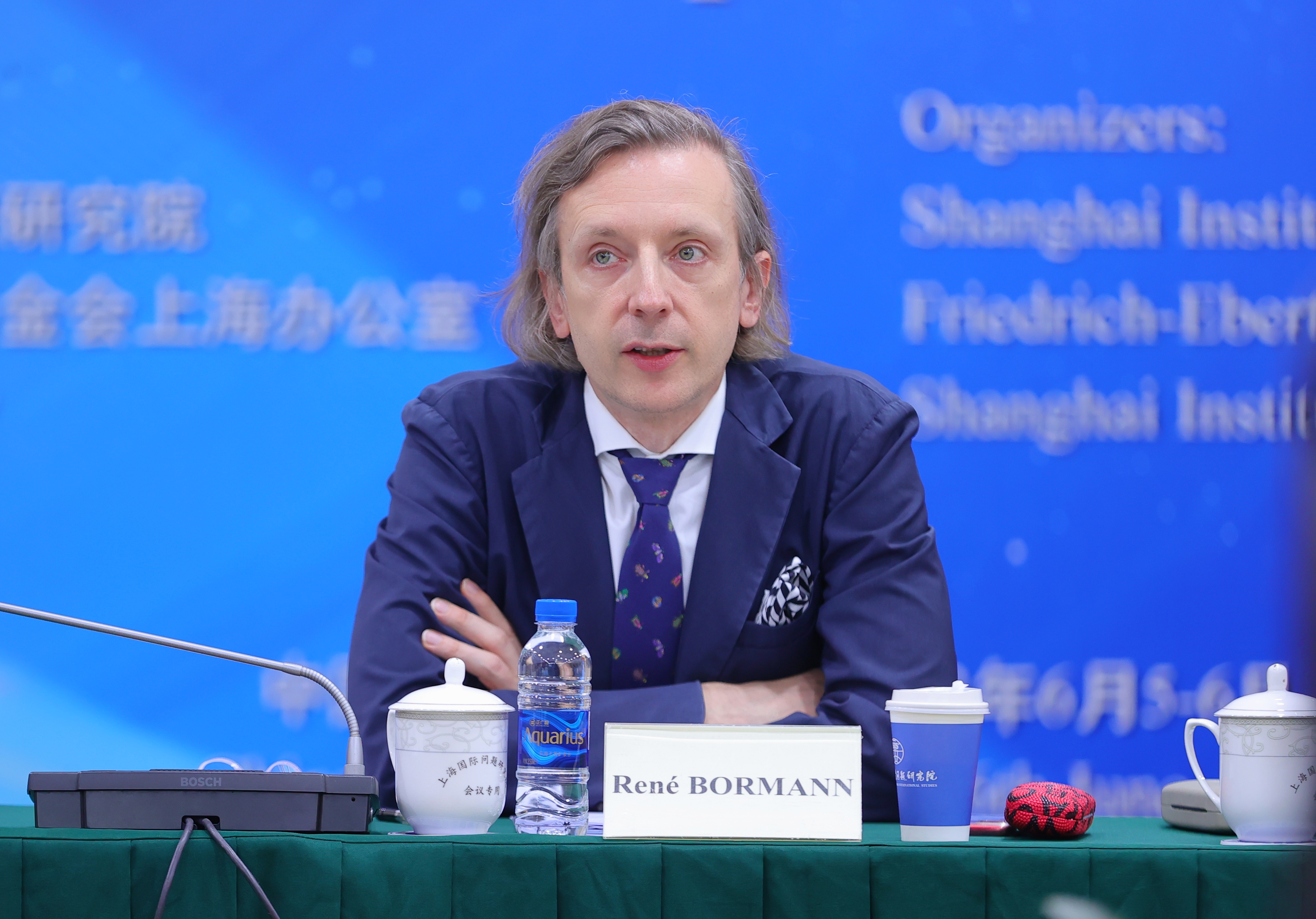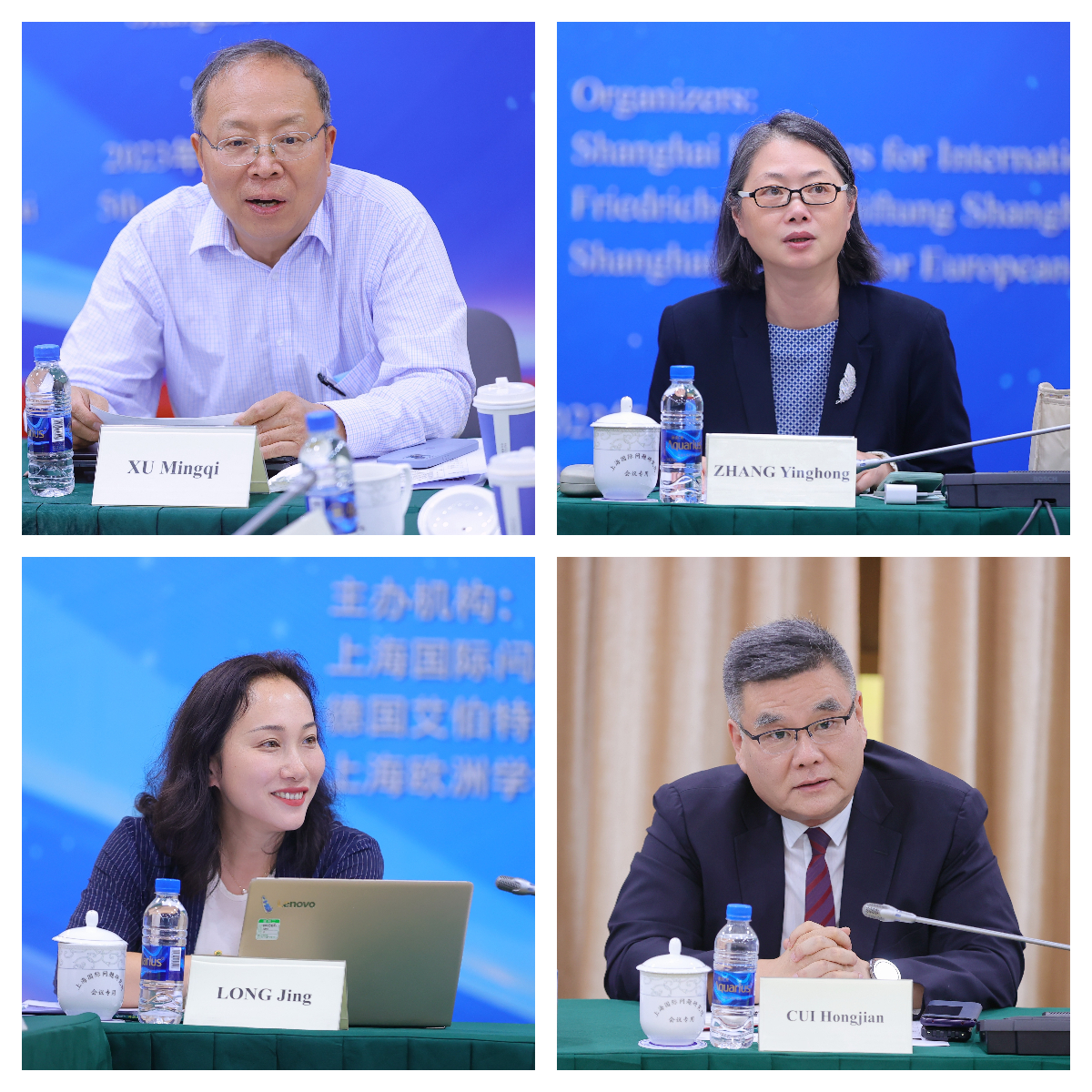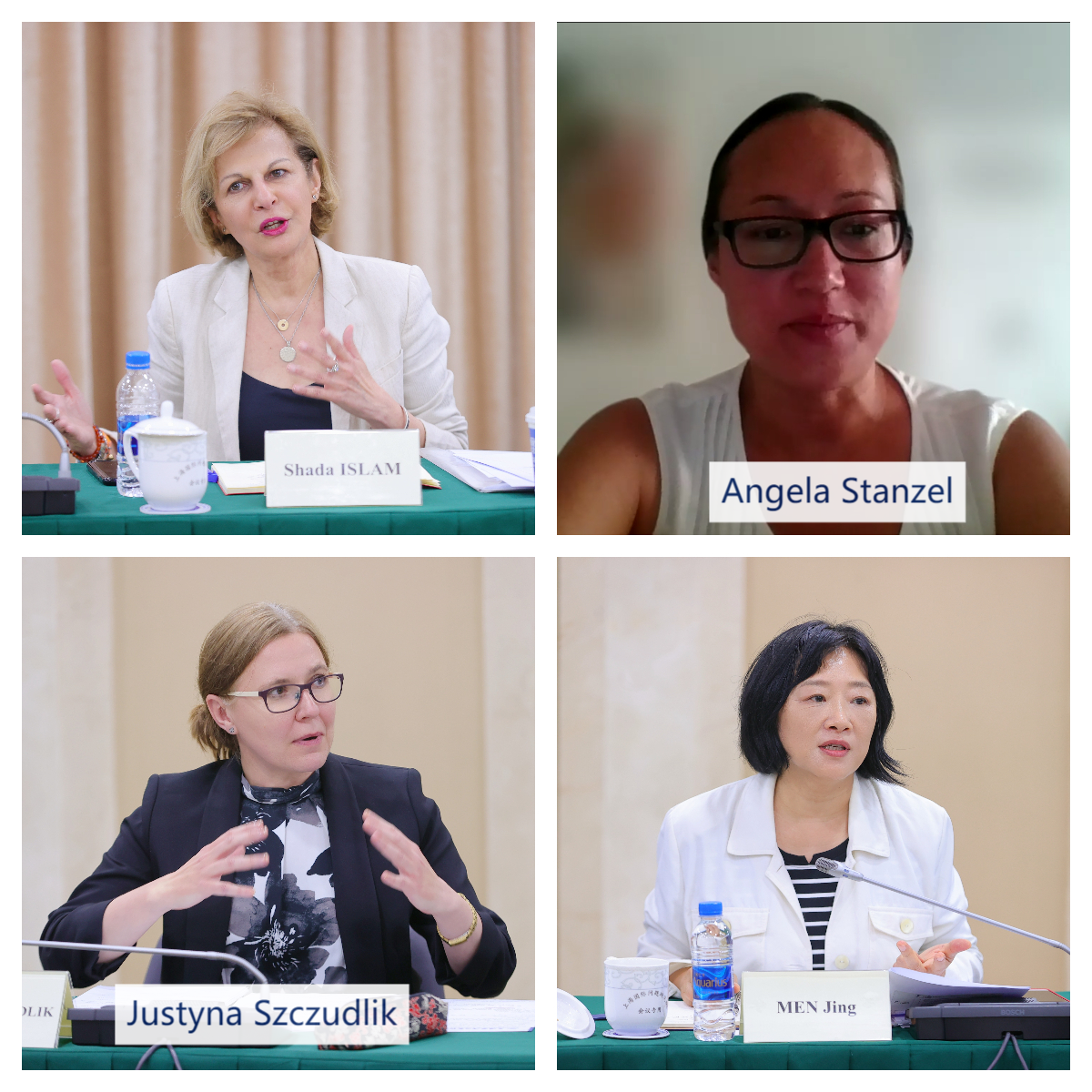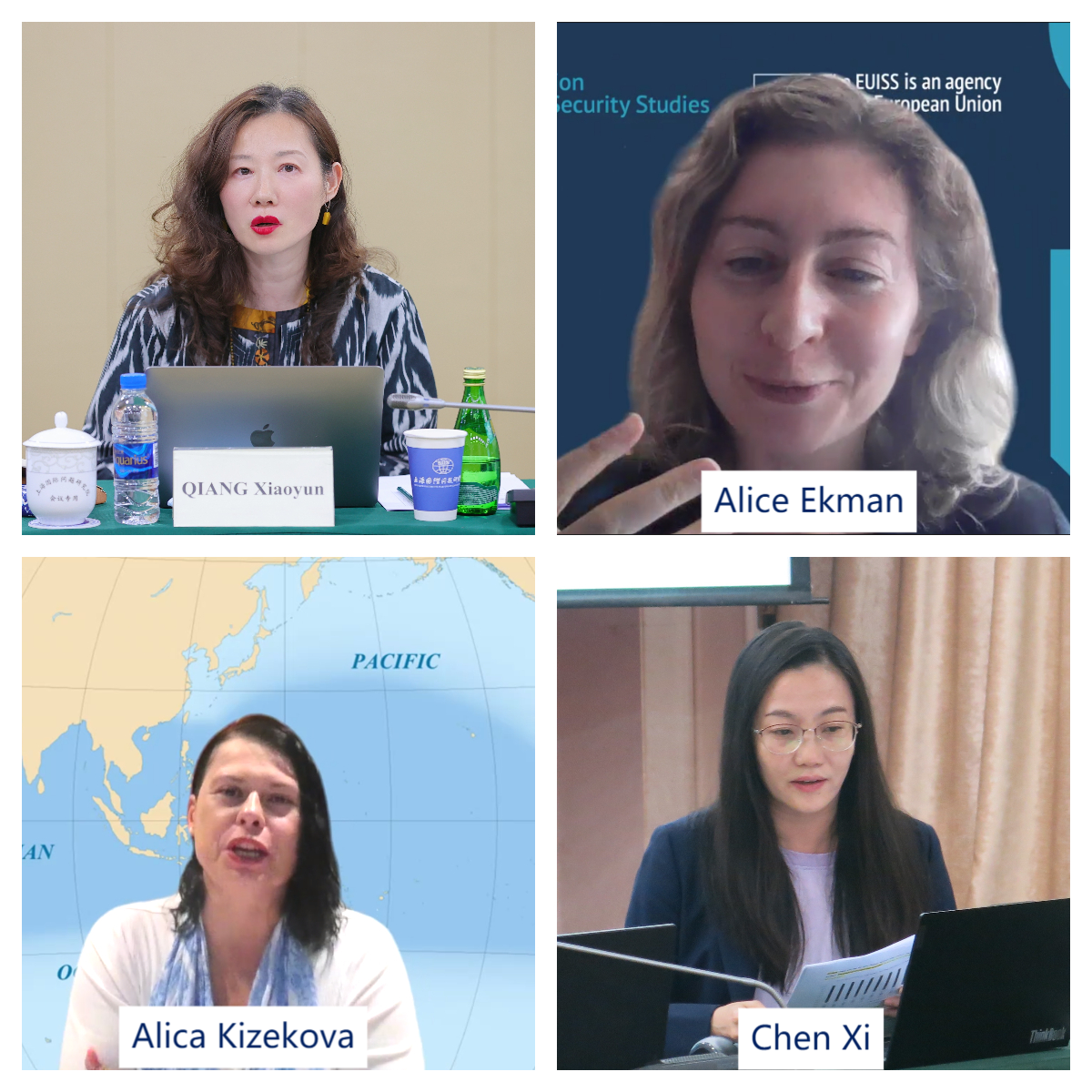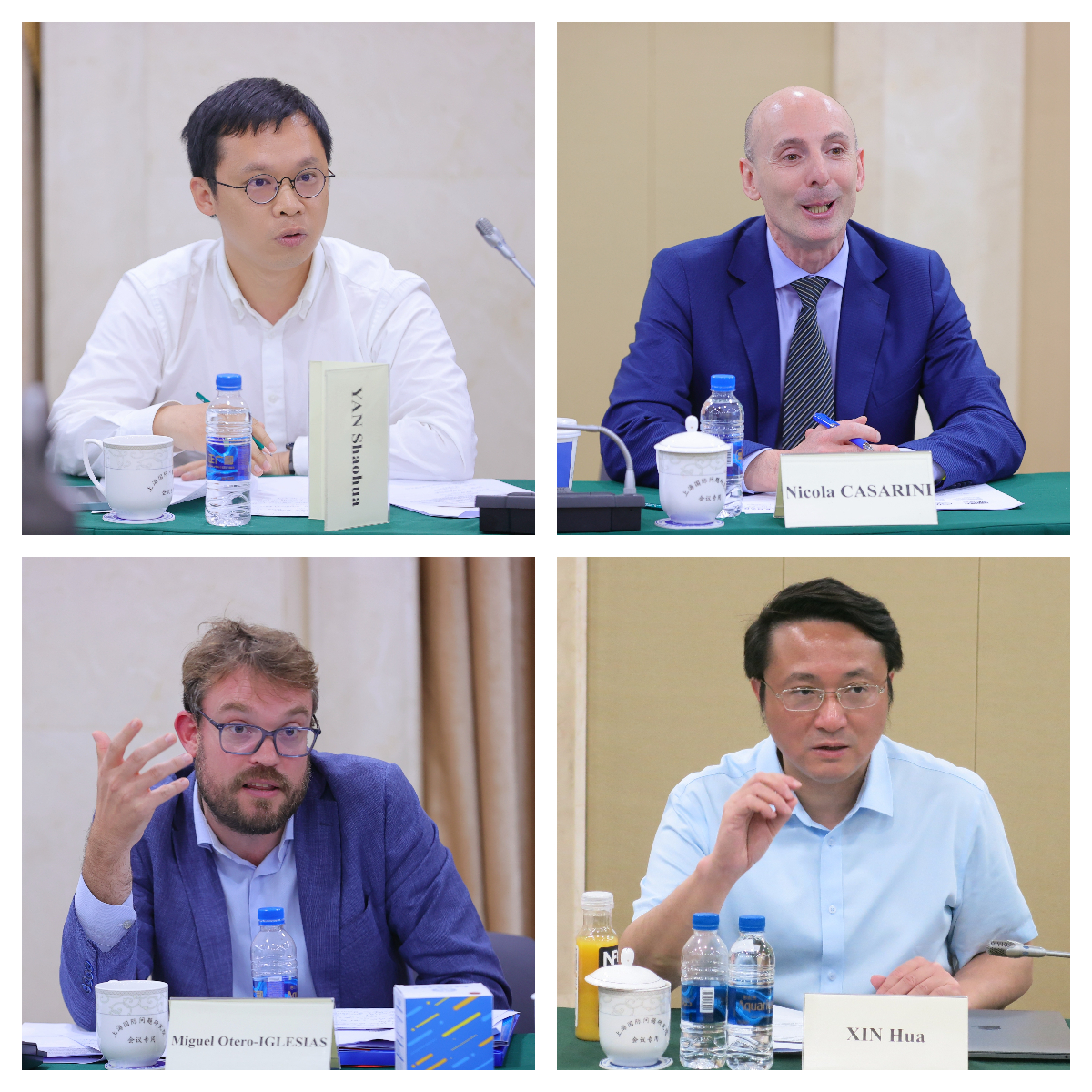SIIS Hosts the First Offline International Symposium between Chinese and European Scholars in Shanghai in Recent Years with Candid and In-depth Exchange on "The Ukraine Crisis's Impact on China-EU Relations"
2023/06/09
On June 5-6, 2023, the Shanghai Institutes for International Studies, Friedrich-Ebert-Stiftung (FES) Shanghai Representative Office and Shanghai Institute for European Studies jointly held an international conference on the Ukraine Crisis’ Impact on China-EU Relations.
This conference is the first academic event that SIIS, together with its partners, has invited scholars from European think tanks to visit Shanghai for offline exchanges since the pandemic outbreak. Scholars from the New Horizon Projects in Brussels, the Italian Institute of International Affairs (IAI), Elcano Royal Institute Madrid (Elcano), and Polish Institute of International Affairs (PISM) were invited to Shanghai. At the same time, European scholars from the German Institute for International Security Affairs (SWP), the Center for Asian Studies of the French Institute of International Relations (IFRI), and Institute of International Relations (IIR) in Prague participated online.
European scholars and experts from China Institute of International Studies, Chinese Academy of Social Sciences, Fudan University, East China Normal University, Shanghai International Studies University, EU-China Lujiazui Institute of International Finance, Shanghai Institute for European Studies and SIIS honestly and in-depth discussed the China’s and the EU’s position on the Ukraine conflict, the Ukraine conflict’s possible outcomes and its impact on the world order, and impacts of the Ukraine conflict on EU-China political and economic relations.
At the beginning of the conference, Chen Dongxiao, President of the Shanghai Institutes for International Studies, and René Bormann, Chief representative of the FES Shanghai Representative Office, delivered opening speeches on behalf of the host. Chen Dongxiao pointed out that the Russia-Ukraine conflict has caused a multi-dimensional impact on the international pattern, which not only has a serious impact on regional security in Europe, but also has a spillover effect on other regions and countries in the world, including the Asia-Pacific region. In order to avoid an uncontrollable end to the conflict, it is urgent for all parties to pool wisdom and strength and reach a political solution as soon as possible. René Bormann said the COVID-19 pandemic has highlighted how countries and people around the world are closely connected and interdependent. More than a year has passed since the conflict between Russia and Ukraine, and peace has become an urgent hope for all sides.
Subsequently, Chinese and European scholars exchanged views on four topics: "China's and the EU's position on the Ukraine crisis", "the development prospect of the Ukraine crisis and its impact on the world pattern", "the impact of the Ukraine crisis on China-EU political relations" and "the impact of the Ukraine Crisis on China-EU economic relations".
Xu Mingqi, Honorary President of the Shanghai Institute for European Studies, and Shada Islam, Founder of New Horizon Projects in Brussels, both said in their concluding remarks that such a frank and in-depth exchange between China and Europe is necessary to clarify the cognitive differences between China and Europe on the Ukraine issue and promote mutual understanding in a way of empathy. We put forward more constructive suggestions for the steady and positive development of China-EU relations.



